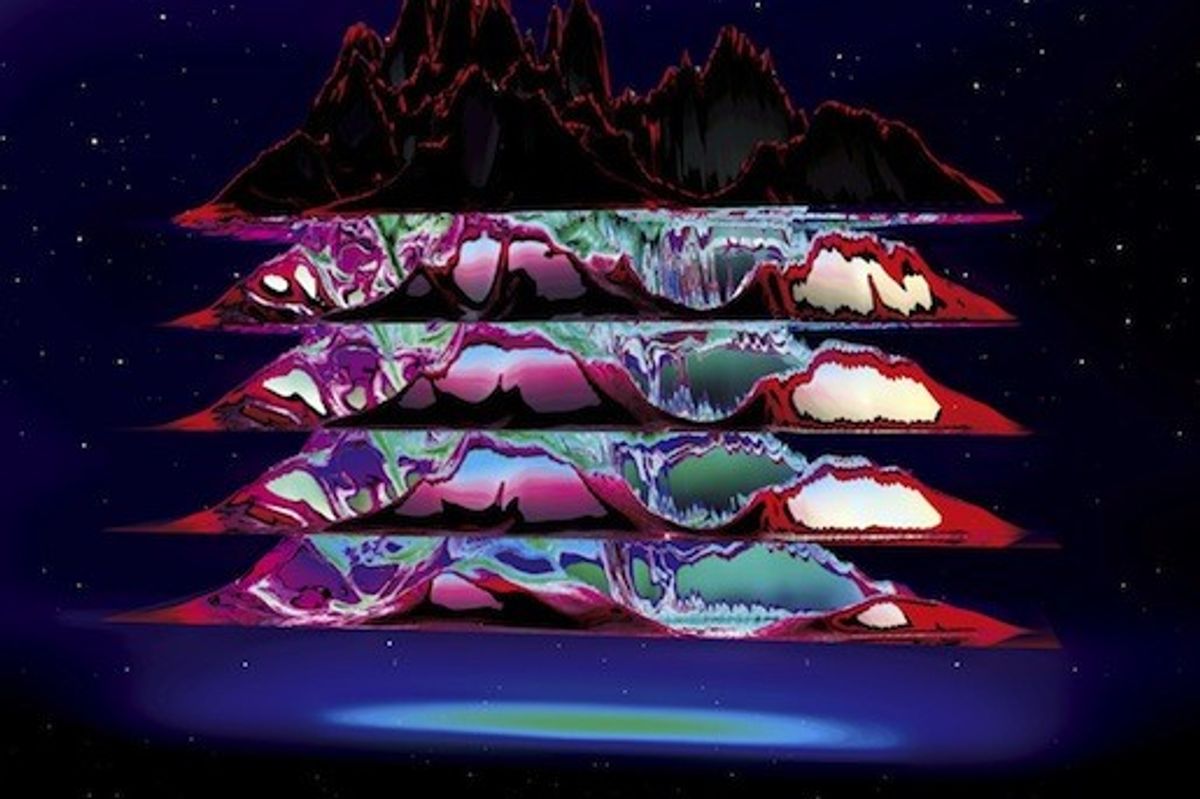
Toki Wright Big Cats Pangea Cover 515
To continue reading
Create a free account or sign in to unlock more free articles.
By continuing, you agree to the Terms of Service and acknowledge our Privacy Policy
Register
The content is free, but you must be subscribed to Okayplayer to continue reading.
THANK YOU FOR SUBSCRIBING
Join our newsletter family to stay tapped into the latest in Hip Hop culture!
Login
To continue reading login to your account.
Forgot your password?
Please enter the email address you use for your account so we can send you a link to reset your password:

Creating hip-hop has historically been an exercise in compression, of distilling many ideas into one fluid production. Hip-hop rewards neatness and puts a premium on precision; even when its innovators play it slack and rough and raw, the music gets made inside a rigidly-defined space. Everything is on point and the beat always drops on time.
But Toki Wright and Big Cats have chosen a more expansive path. The Minneapolis-based MC and producer will drop their new full-length LP Pangaea tomorrow with hopes of broadening the horizons of the genre they love most. “I think hip-hop has great social implications and an important role, but it’s not the end," Wright said. "There are more places to go."
On Pangaea, those new places begin to take shape. The record contains zero samples--its tracks are cut-up, reinterpreted versions of intense live studio jams that Big Cats (aka Spencer Wirth-Davis) oversaw himself. "I really like having everyone in the same room playing together, for chemistry and the weird little artifacts that you get in the recording," Wirth-Davis said. It's a tactic he's deployed in the past with great success, and one that Wright was drawn to from their very first meeting. "He's always had something that's futuristic and soulful," Toki said of Big Cats. "He's still the best producer in Minneapolis."
The duo began working together after sharing a Minneapolis stage in 2012 and hit their stride early. "Toki works faster than probably anybody I’ve worked with," Wirth-Davis said. "I'll send him 7 or 8 beats in a folder and the next day he hits me back with demos for all of them." Wright comes from a background in poetry and community action, while Big Cats has a taste for J Dilla, East Asian percussion and jazz. Their live sets grew into dynamic half-improvised show-stoppers, and as months passed the duo polished their sound--a progressive strain of hip-hop that owes as much to Flying Lotus's free-form textures as it does to Yeezus-style aggro-rap. On full display throughout Pangaea, their blend of anarchy and archetypes makes them the best, most important hip-hop act that Minneapolis has to offer.
Working with hours of his own raw material and a mind driven by wide curiosities, Big Cats produced 13 tracks of multicolor brilliance. Pangaea's title track features programmed snares that glide over currents of live percussion, just as cello, trumpet and synthesizer spiral toward a starry coda. Elsewhere live piano saturates and snare drums echo like faded afterthoughts.BJ The Chicago Kid holds down "Cold World" just before the track's blindside tempo shift, key change, and final spoken word interlude., and"You Know" dishes fiery, all-out trap before ultimately unraveling into the tape hiss of "Gatekeepers." "I wanted to keep on catching you off-guard," Wirth-Davis said. In that aspect, he undoubtedly succeeds.
Toki sums it all up in an early opening line: "Here we go back to a place that maybe never was the case"--the perfect sentiment for Pangaea's sound. Wright and Big Cats are pulling the classic hip-hop tropes of rhymed verses and heavy backbeats down toward their roots; lines of free-form rumination on human freedom, no-hook interludes and live instruments define the album, making it a musical "before" that's surprising to modern ears.
Minneapolis is rich with creative minds and boasts a thriving rap scene, but both Wright and Wirth-Davis are aware that their hometown has its foibles. "In a city where the entertainment writers are ignoring Northsiders/Only focus on the indie rock run-up/That shit's biased" Toki raps on "Gatekeepers," a pointing a finger at the small and powerful press cadre that can decide who sinks and swims in the local scene.
"You've got rap and indie rock and bluegrass overlapping, which is really cool," Wirth-Davis said. "But the more indie rock-oriented stuff seems to be what gets picked up by press, and what seems to get pushed outside of the area. You look at Atmosphere, for instance--there are elements of hip-hop in that, but there are other and perhaps stronger elements there, too." Still, both Wright and Wirth-Davis think very highly of their scene, and are quick to list over a dozen names of artists they revere. "There's so many different dope sounds," Big Cats said. "So many very different live shows."
As Pangaea teeters toward its final act, the layered banger "Rebirth," it becomes clear that its makers are seeking something longer-lasting than hip-hop. Long after Toki's final line, "Re-plant it in the planet how I planned it/And this is what rebirth is," guest vocalist Lydia Liza's cloudy alto skips and fades into disintegrating loops. It's a sound that borders on ambient music and leaves you with sense of grainy, fragile contentment. Pangaea is a lush and intelligent high-water mark for hip-hop everywhere--proof that the genre still has whole new sonic continents to explore.